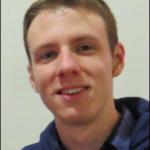Live events come in all shape and sizes. Formal live events are typically events that organizations put on and attendants are dressed in formal clothing. For example, a gala dinner fundraiser or a school year 12 graduation. These sorts of events create a few unique challenges for technical crews.
The stakeholder problem
Formal events are normally high-risk events. Someone is paying you to make sure what they want to do in regards to sound, data and vision is done and is done seamlessly. To achieve this, it's important that you communicate well with the client and find out exactly what they want. This means understanding what the organization does, what they want to achieve by putting on the event and what exactly are there sound, lighting and data requirements. Failing to get this right will result in an over or under specified sound/lighting/data reinforcement system and one very unhappy client.
The meal loudness problem
Music based acts that perform during a meal can be hard to get right mix wise. These sorts of acts are either the focus (show with dinner) or background entertainment (dinner with a show).
In the case the act is the focus during the meal it’s ok for it to be loud during the meal. Although it's probably unwise for it to be so loud that people at the same table have to shout to talk to each other.
In the case that the act is performing as background entertainment that it is critical that the volume level allows people to talk to each other. To help achieve this you can reduce the sound coming out of you front of house speakers that is in the same frequency block as people's voices (~1k-3k).
The room problem
Event halls come in many shapes and sizes. Very few halls are designed correctly to accommodate a sound reinforcement system. The most common problem I run into is that no matter what hall I’m working in, there is never a wall that doesn't have a door, entrance or adjacent walkway in the middle of it. Subsequently running a multi-core, power and/or networking around the edge of a hall to a mixer located at the back of the haul involves taking care of a massive minefield of trip hazards.
A thick analogue multicore is best placed in a “cable tray cover guard” to prevent people from either tripping over or stepping on it. As I run digital mixer I don’t have this problem but I still need to get power and a CAT5 cable out to the mixer's control surface. These sorts of cables are generally thin and in most cases, can be hidden under a series of carpet squares (which are gaffed to the floor the prevent them from moving) to eliminate the trip hazard. In the latter case it’s best not to run cable right under the middle of the carpet because people always like to step in the middle of it from some reason.
http://www.downloads.jouebien.tech/20-07-2017/CAM00243.png" >

[figure 1 - A set of carpet squares covering a CAT5, power and 2 analogue lines]
The run sheet problem
Many organizations don’t employ a professional event planner which means that the person planning the event is unlikely to provide you a well formatted or thought out run sheet. The worst run sheet I’ve received was a list of items that was center aligned. It looked nice on the A3 sheet pinned to a board in the hall entrance and in the audience member booklets however it provided little to no information to the other technicians, myself or the other people involved in running the event. A run sheet needs to answer the when/what, who, what and how.
- When and What order are items performed in?
- Who is involved in each item?
- What sound, lighting and data is need to do during that item
- How is something done? - which is any notes in relation to what is going on during each item
I typically print off my own run sheet and fill it in with all the information I need to run sound or data (sometimes both). Often times this results in a series of questions to the organizer to clarify what they actually want.
[figure 2 - the generic run sheet I use]
The questions problem
When you're running sound, data or lighting there are no stupid questions. Failing to ask about something that you don’t know the answer to can mean the difference between an event running seamlessly and it turning into a disaster.

Zach Radloff lives on the Gold Coast. He is studying IT and Multimedia at university and is a qualified Live Production, Theatre and Events Technician.
Zach Radloff's previous articles may be viewed at www.pressserviceinternational.org/zach-radloff.html

Zach Radloff is the Press Service International long serving IT young writer from the Gold Coast